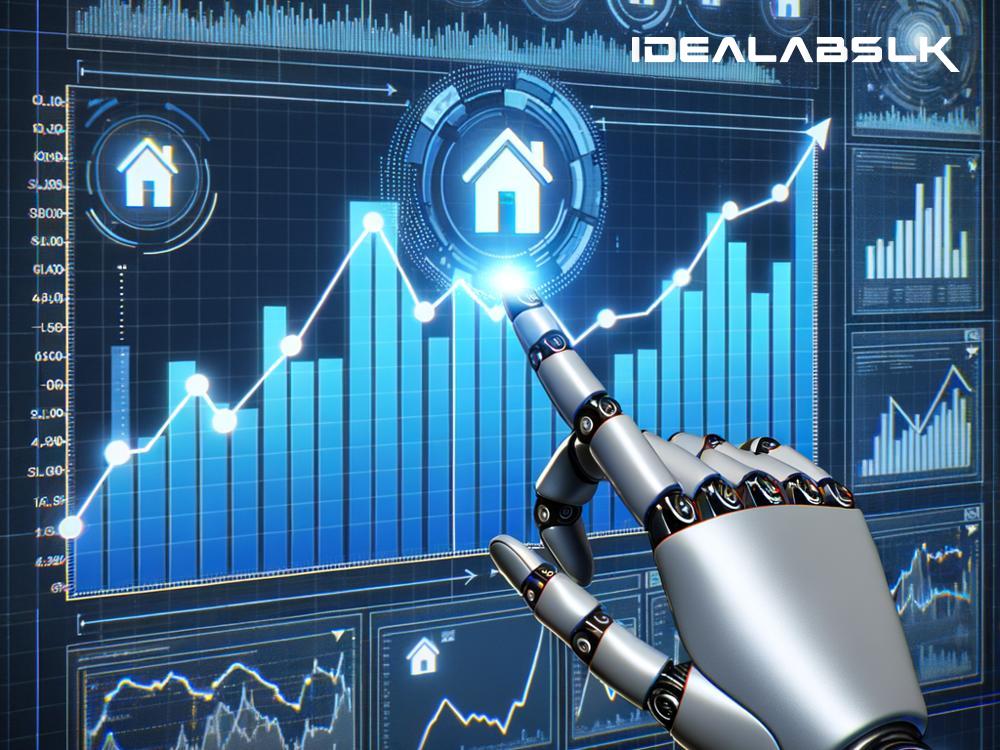Title: How AI Predicts Property Price Changes: A Simplified Guide
Have you ever wondered how property prices soar or plummet overnight? Or how real estate experts seem to have a crystal ball, predicting property market trends with astonishing accuracy? Well, the crystal ball is no longer a mystical artifact but a practical tool powered by Artificial Intelligence (AI). In this blog, we're diving into the simplified world of how AI predicts property price changes, making sense of complex algorithms in a way that everyone can understand.
What is AI in Real Estate?
First things first, let's decipher what we mean by AI in the realm of real estate. Artificial Intelligence, in simple terms, is a technology that allows machines to learn from experience, adjust to new inputs, and perform human-like tasks. When applied to the property market, it becomes a powerhouse of predicting changes, analyzing trends, and offering insights that were once impossible to grasp quickly.
The Magic Behind the Predictions
Now, let's uncover the magic behind these predictions. The process starts with data – lots of it. Imagine every property transaction, listing, renovation, and even local government policy being recorded. This data, when compiled over years, becomes a treasure trove for AI systems.
AI uses something called machine learning, a subset that involves teaching a computer how to make predictions or decisions based on data. It works somewhat like a highly advanced pattern recognition system. For property prices, the AI analyzes previous and current data to detect trends and patterns. Factors could include market demand, interest rates, neighborhood developments, and even broader economic indicators.
The Role of Big Data
The term "Big Data" refers to the vast amounts of information that AI systems sift through. In real estate, big data could be historical price trends, demographics, local amenities, and much more. It's not just about the quantity of the data but the variety and the speed at which it can be processed to make meaningful predictions.
One innovative example is how AI uses social media and news sentiment analysis to predict neighborhood popularity, indirectly affecting property prices. If an area suddenly becomes the hot topic of positive social media chatter, it's likely to see an upswing in demand.
Machine Learning Models
At the heart of AI's predictive capabilities are machine learning models. These models are trained on historical data to understand and predict future outcomes. For example, a model might learn that properties near a newly planned subway line appreciate faster than those further away. As it absorbs more data, its predictions become more refined and accurate.
The complexity of these models varies, with some incorporating hundreds of variables to forecast price changes. By continuously learning and adapting, they offer an incredible tool for real estate investors, buyers, and sellers to make informed decisions.
Real-life Applications
So, how is this technology applied in the real world? Real estate platforms leverage AI to provide estimated property valuations, often seen as 'Zestimates' or similar. These estimates help sellers set competitive prices and buyers to determine fair offers.
Beyond individual transactions, AI predictions assist governments and urban planners in understanding future housing demands, aiding in more efficient infrastructure and housing development planning.
The Human Element
Despite the sophistication of AI, it's crucial to remember the importance of the human element. While AI can forecast based on data, human expertise is invaluable in interpreting these predictions within the broader socio-economic context. Real estate professionals use AI as a tool to complement their knowledge and experience, not replace it.
Challenges and Considerations
As with any technology, AI's predictive accuracy in real estate is not infallible. The quality of the predictions depends heavily on the quality and quantity of the data inputted. Also, sudden, unpredictable events (like a global pandemic) can temporarily skew the AI's learning process.
Moreover, there's an ongoing discussion about the ethical use of AI, ensuring that it doesn't unintentionally perpetuate biases or inequality within the housing market.
Wrapping Up
AI's role in predicting property price changes symbolizes a significant leap forward in how we understand and interact with the real estate market. By harnessing vast amounts of data and learning from patterns, AI equips stakeholders from buyers to planners with powerful insights into future trends.
As this technology evolves, its predictions will become even more precise, making the real estate market more transparent and accessible to everyone. The future of property price prediction is here, and it's powered by AI. With this tool, the once daunting task of navigating the property market becomes a guided journey, enlightened by data and powered by technology.

